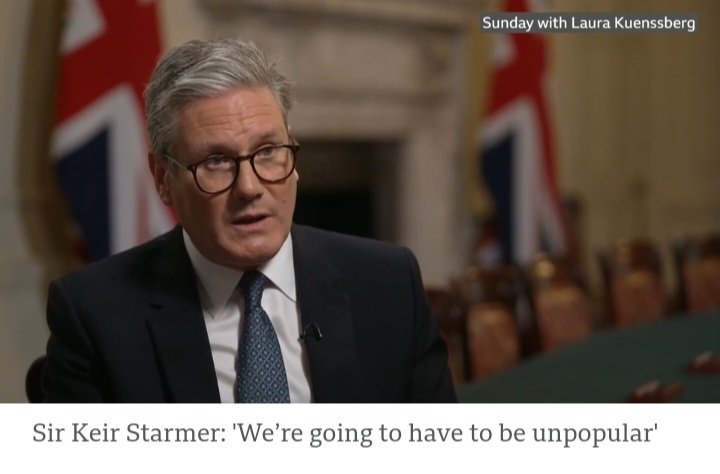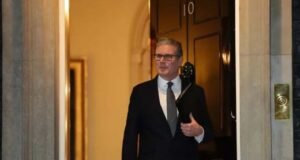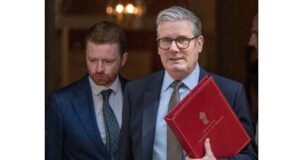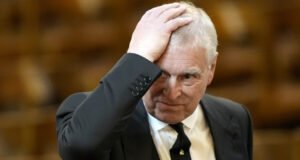 The prime minister has told the BBC his new government is “going to have to be unpopular” as he defended his “tough” decision to cut winter fuel payments.
The prime minister has told the BBC his new government is “going to have to be unpopular” as he defended his “tough” decision to cut winter fuel payments.
Speaking on Sunday with Laura Kuenssberg in his first major interview in Downing Street, Sir Keir Starmer said he was determined to deliver change but this meant having to “do the difficult things now”.
Challenged on his plan to remove winter fuel payments from most pensioners while also awarding above inflation pay rises to some public sector workers, he said he was “fixing the foundations” and those in need would still get assistance.
He said: “When we talk about tough decisions, I’m talking about… the things the last government ran away from.”
On his plan for winter fuel payments, Sir Keir wouldn’t say if he would suspend Labour MPs who vote against it this week, saying his government was “going to have to be unpopular”.
The payments of between £200 and £300 a year were paid to more than 10 million pensioners a year, but were axed for all but the poorest by Chancellor Rachel Reeves in July.
Among the public sector pay settlements reached in recent weeks were a 22% pay rise over two years for junior doctors and 4.5% for train drivers in 2024/25.
No 10 faces a potential rebellion in Parliament this week when there will be a vote on the decision to scrap the payments.
Sir Keir said the cut was necessary because of the state of the country’s finances, accusing previous governments of avoiding confronting issues like the cost of winter fuel payments.
“I’m convinced that because they’ve run away from difficult decisions, we haven’t got the change we need for the country,” he said.
He said he was “absolutely convinced we will only deliver that change, I’m absolutely determined we will, if we do the difficult things now. I know they’re unpopular, I know they’re difficult, of course they’re tough choices.”
“Popular decisions aren’t tough, they are easy,” he added.
Sir Keir’s personal ratings have fallen since he took office, with the decision to axe winter fuel payments, repeated warnings about the state of the economy, and pressure on government spending ahead of the budget at the end of October.
 Weekly Bangla Mirror | Bangla Mirror, Bangladeshi news in UK, bangla mirror news
Weekly Bangla Mirror | Bangla Mirror, Bangladeshi news in UK, bangla mirror news







